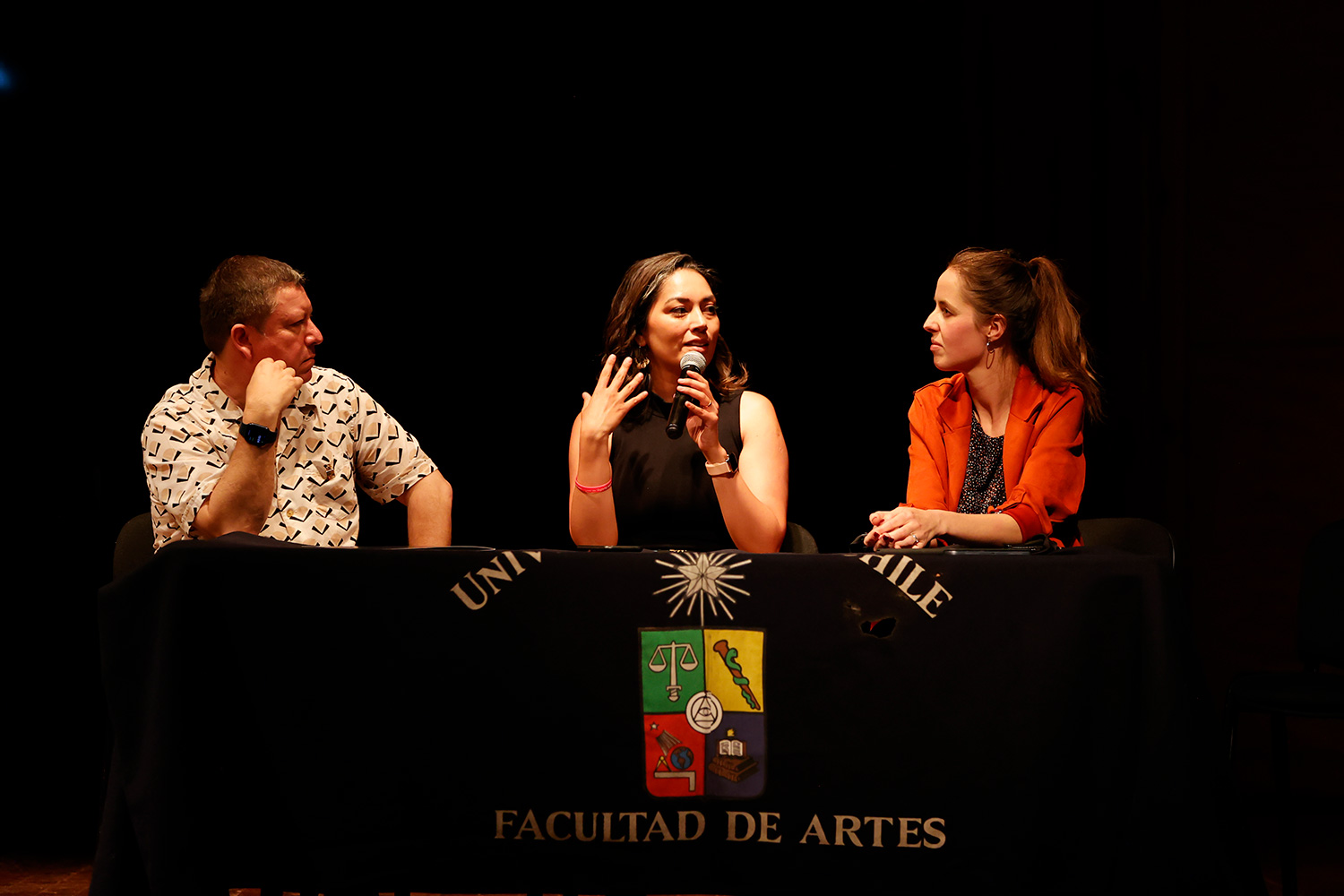
GI-ESCR and Universidad de Chile announce contest on public services, human rights and arts
Generating reflection and inviting the university community to discuss public services, human rights and arts is the objective of this artistic contest aimed at students of the University of Chile. The contest was presented this Wednesday, 13 December, within the framework of the existing agreement between the University of Chile and GI-ESCR.
The activity included the participation of students and academics from the University, at a space for dialogue that included the director of Extension of the Casa de Bello Fabián Retamal, the director of the Artistic and Cultural Extension Center (CEAC) of the University of Chile Dominique Thomann, and our representative for Latin America Valentina Contreras.
In the instance, to encourage the participation of the student community, both discussed their experiences and learning in relation to public services.
The call is aimed at all undergraduate and postgraduate students of the University of Chile, who may participate individually or collectively in categories “A” and “B”.
Category A will group graphic works and fine arts (painting, sculpture, photography, ceramics, metalwork, engraving and textile art), while group B will consider other artistic expressions, such as short films, songs, musical compositions, sound art, dance, theater, scenic or performative installation, spoken word and oral narration.
The details of the bases and conditions will be announced in March 2024.
To start the conversation, the artist and cultural manager Dominique Thomann referred to her experience from the musical field, bringing a perspective to make visible the problems of her experience as an artist and manager. “The CEAC has a national magnitude, I believe that we have to be guardians of the rights already won. There is a budget and that cannot be lowered, we must discuss and argue why we need more and take care of those spaces,” she stated.
Retamal indicated that "the invitation is to reflect, through art, on public services, human rights and the arts as a defense of these rights to build more just, more inclusive and egalitarian societies." In this line, he added that, “we want to involve the different faculties because, as you see, not only will there be arts, but also philosophy, narrative and audiovisual”.
The link between art and public services
Valentina Contreras delved into the work of GIESCR on the promotion and guarantees of access to public services.
“We work worldwide and our agenda today focuses on just transition in terms of climate and energy. We also work to ensure sufficient fiscal space to be able to guarantee these economic, social and cultural rights and how this is essential to guarantee these rights at a global level”, she expressed.
She also delved into those international standards that must be enshrined through public services. “We are talking, for example, about the right to education, the right to social security, the right to health. Therefore, when we talk about education or health, it is very important to look at or attend to these public services and how we can improve in the present, but also in the future”. She added that, "for us it is very important to build it through different media, and art is a device that allows us to generate these decisions or trigger these discussions."
“The invitation that we want to raise from our organization is to be able to open to other disciplines, other means, other devices such as art, that allow us to reflect, that allow us to bring evidence, that allow us to bring emotions from other disciplines that are very important. To be able to expand the spectrum of improvement of these universal and quality public services,” she concluded.





